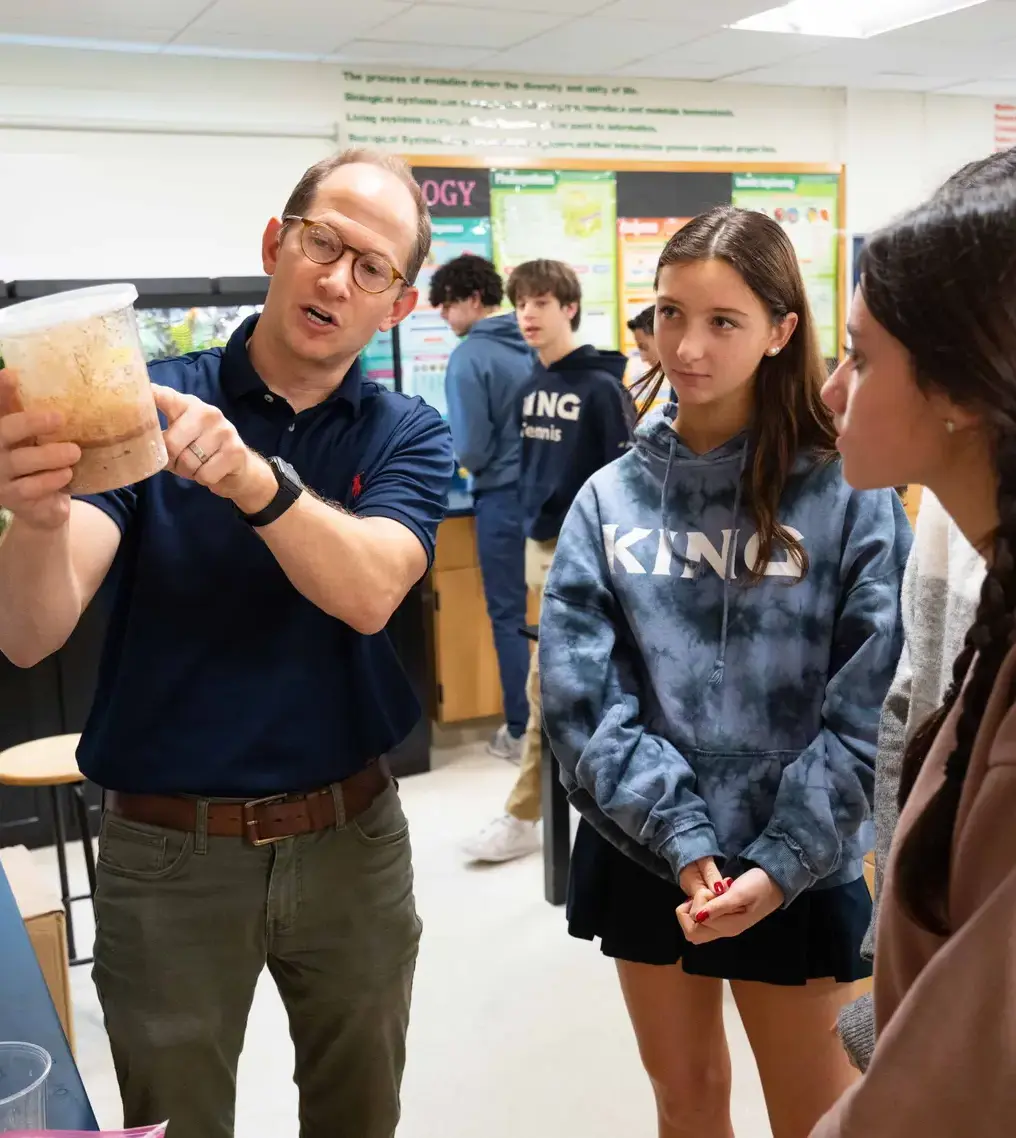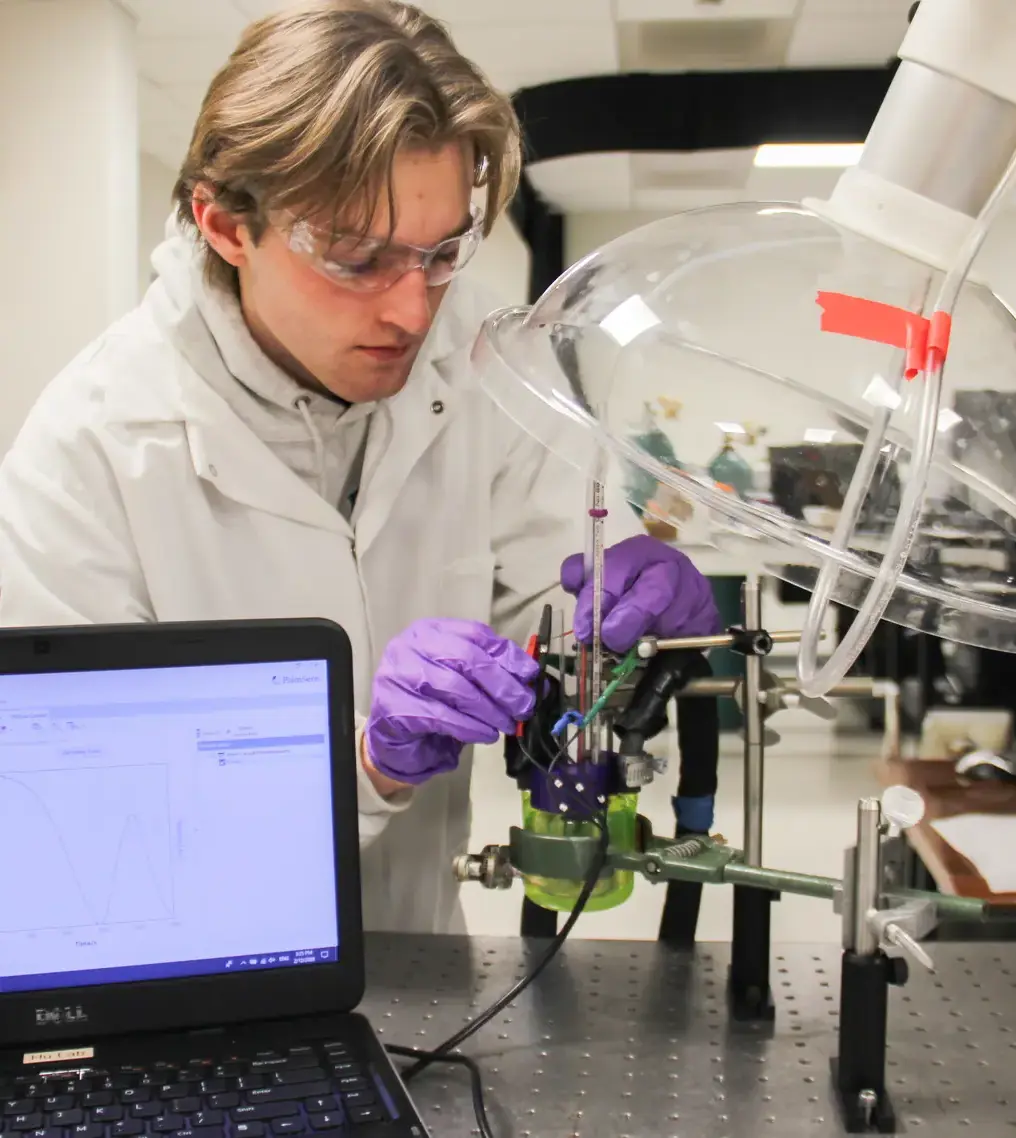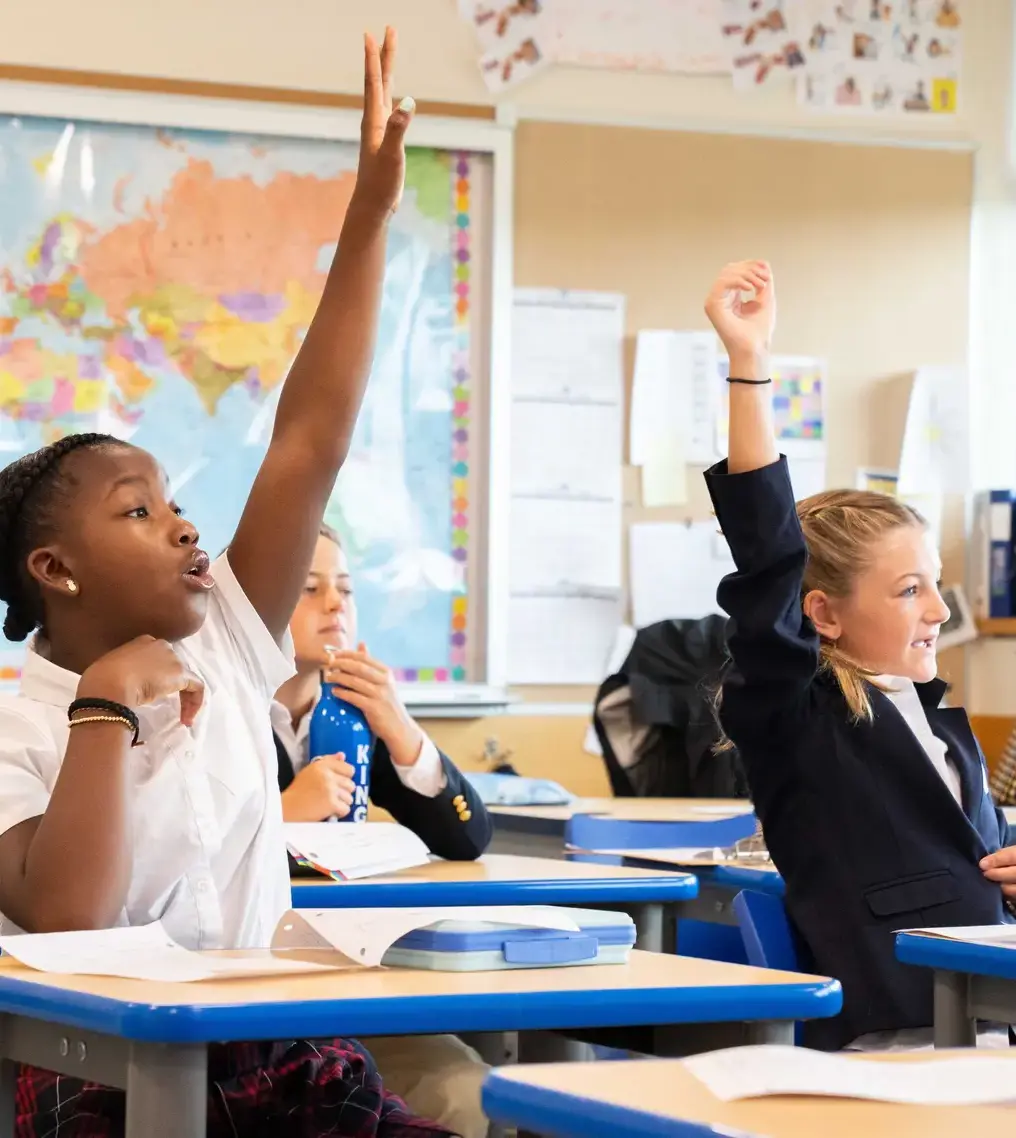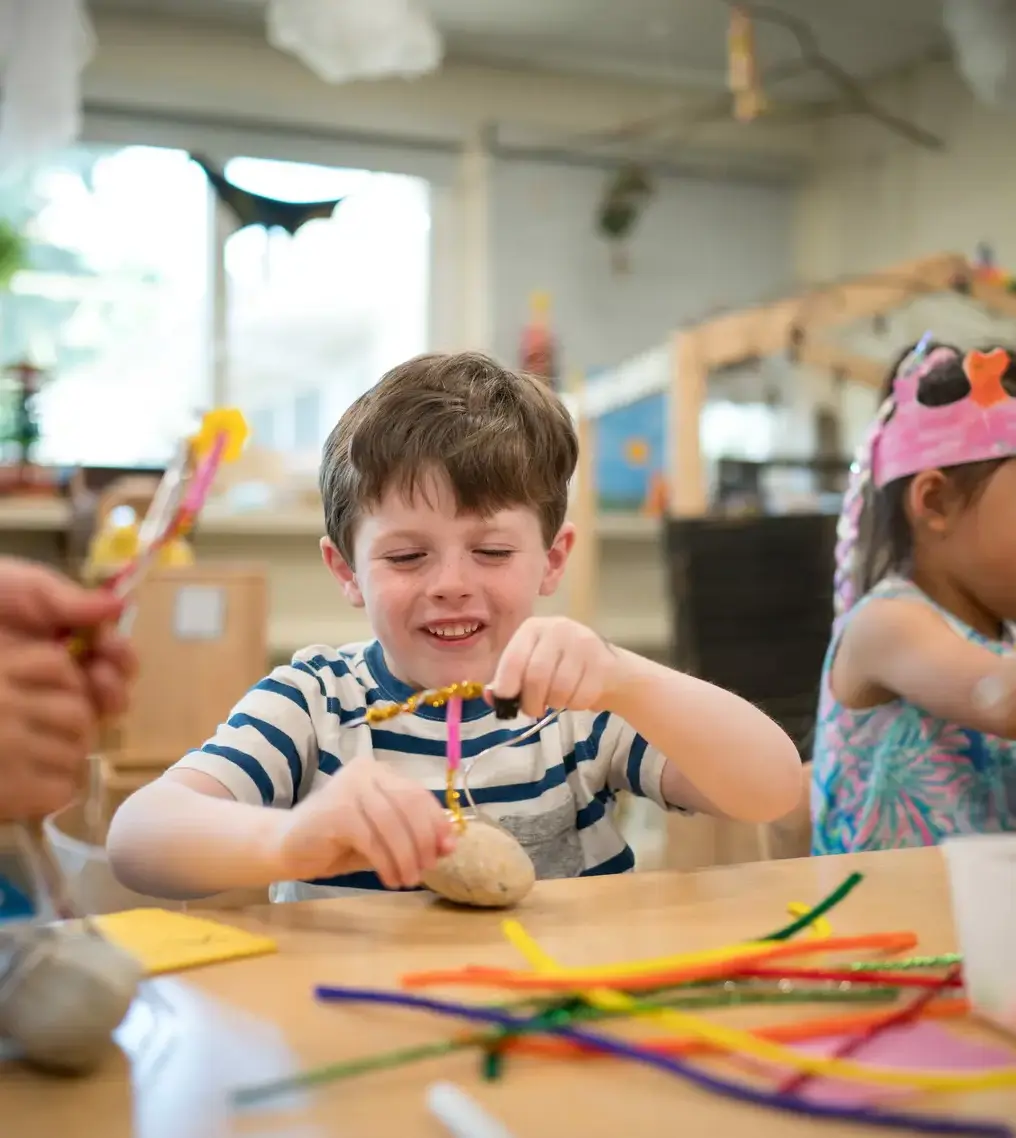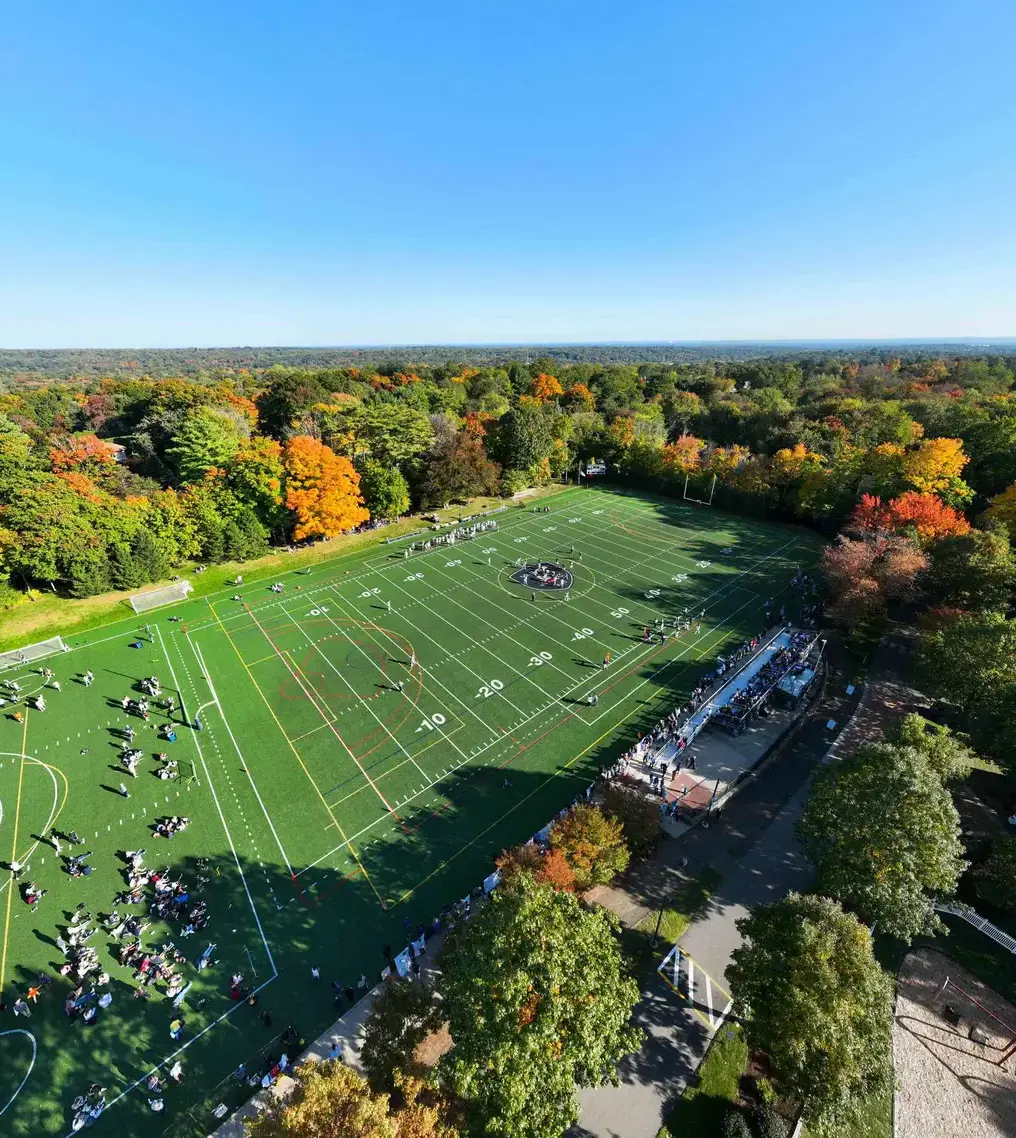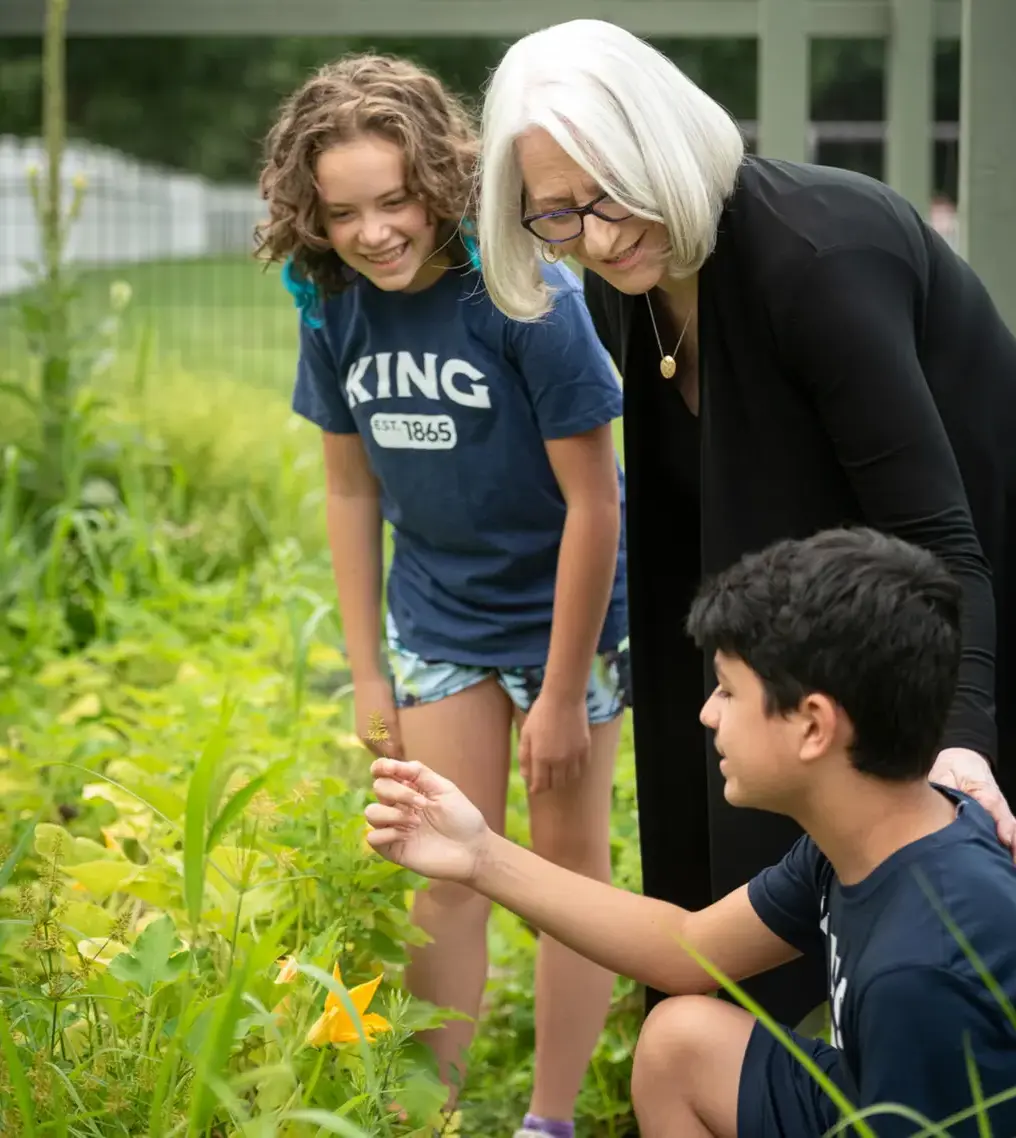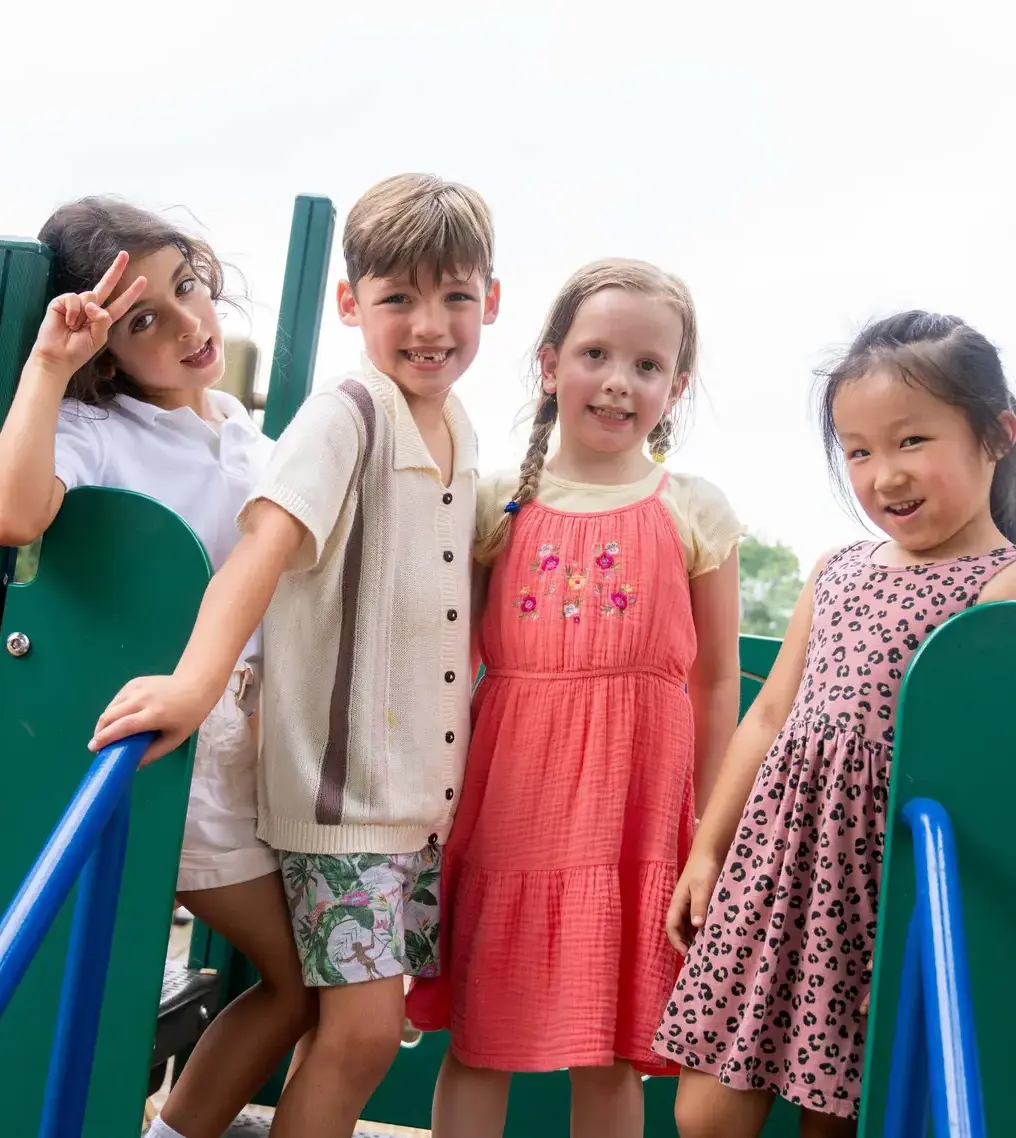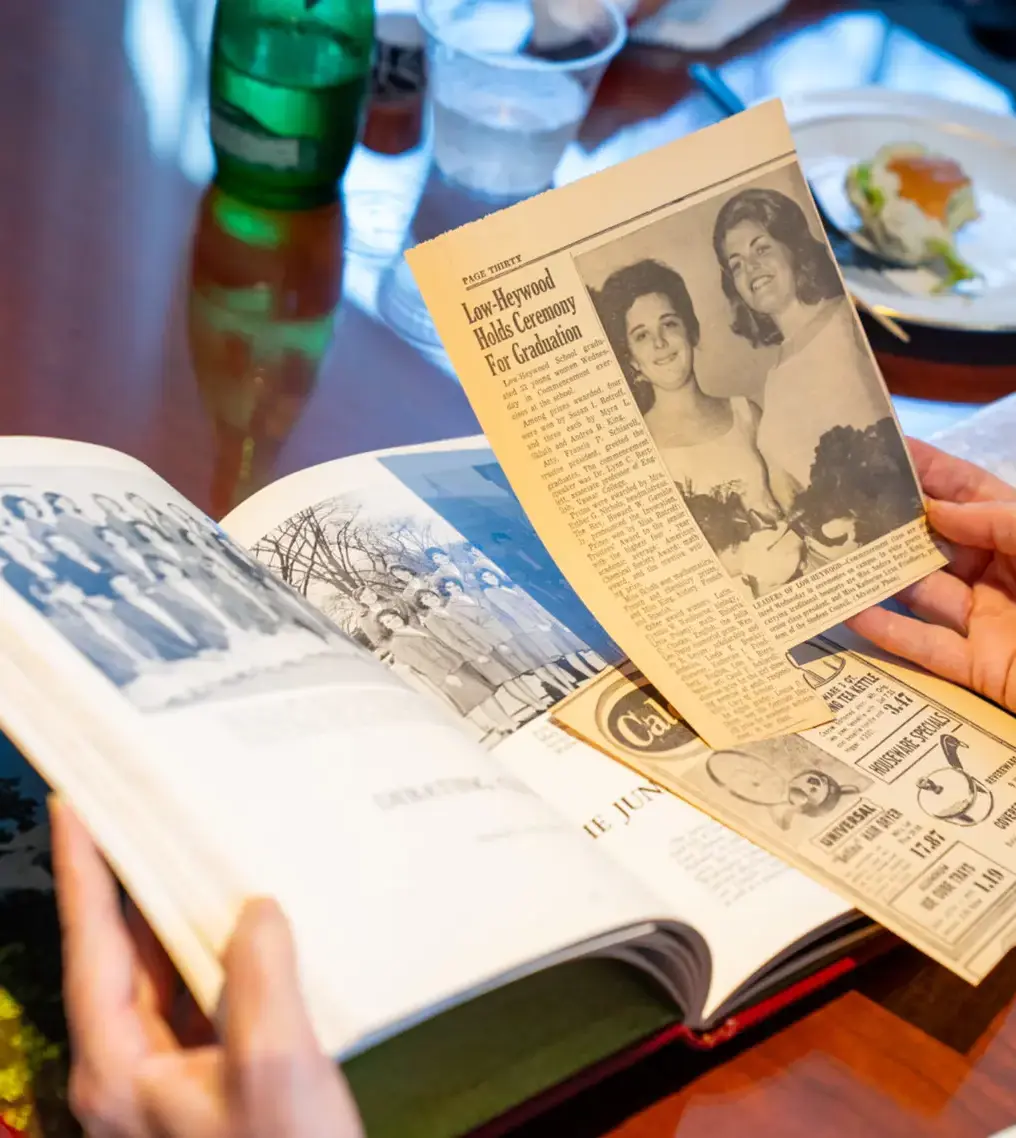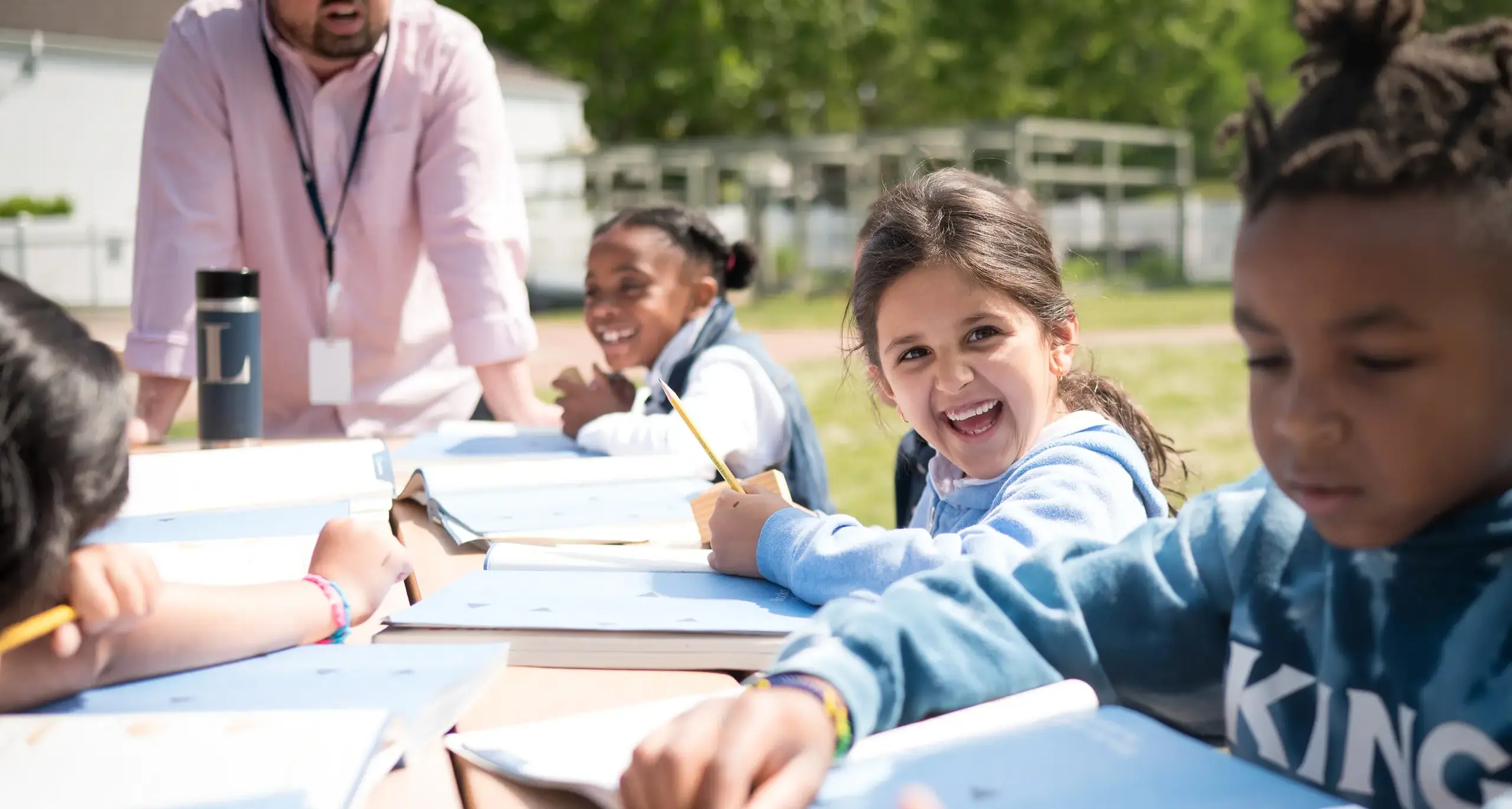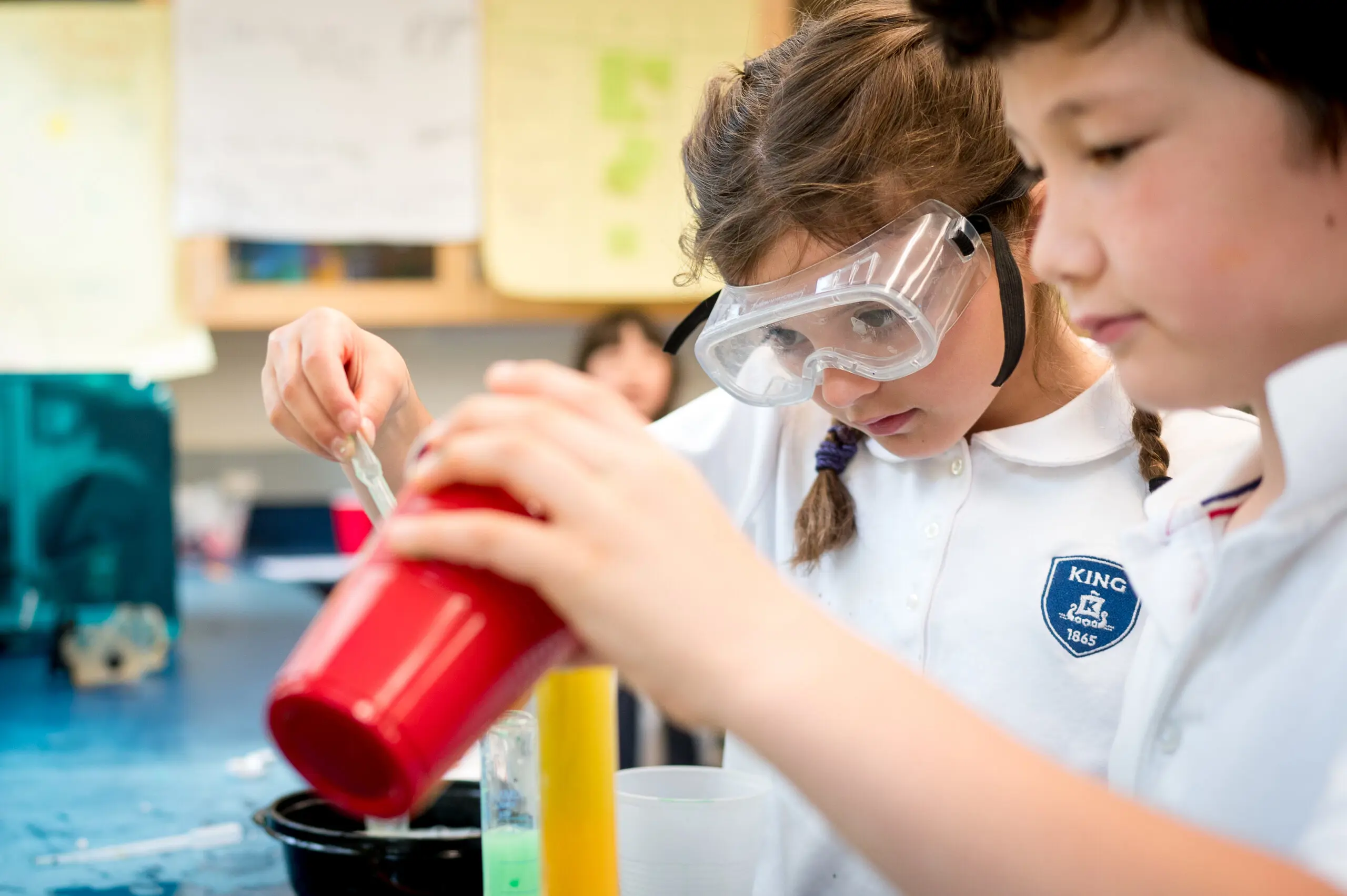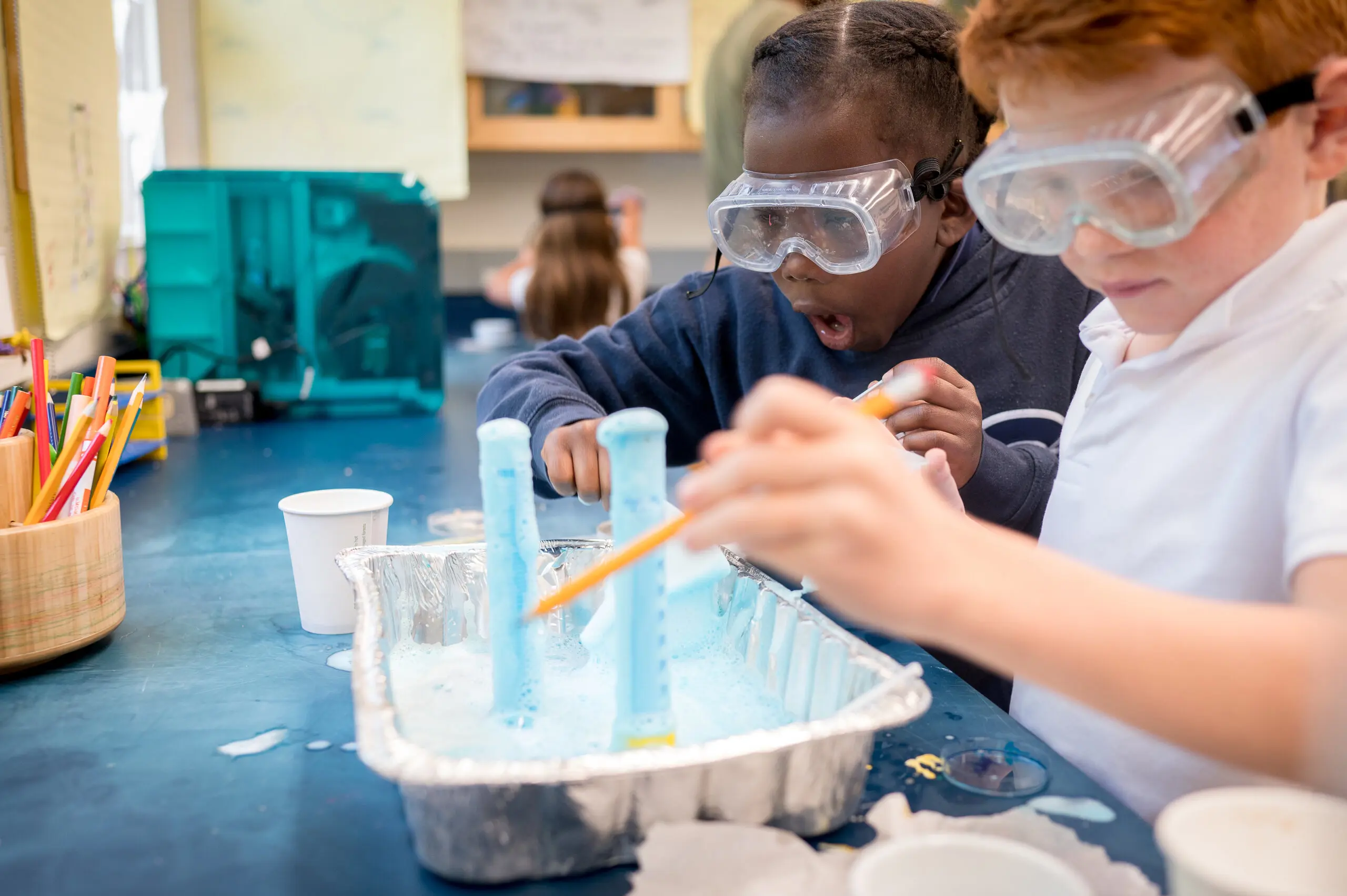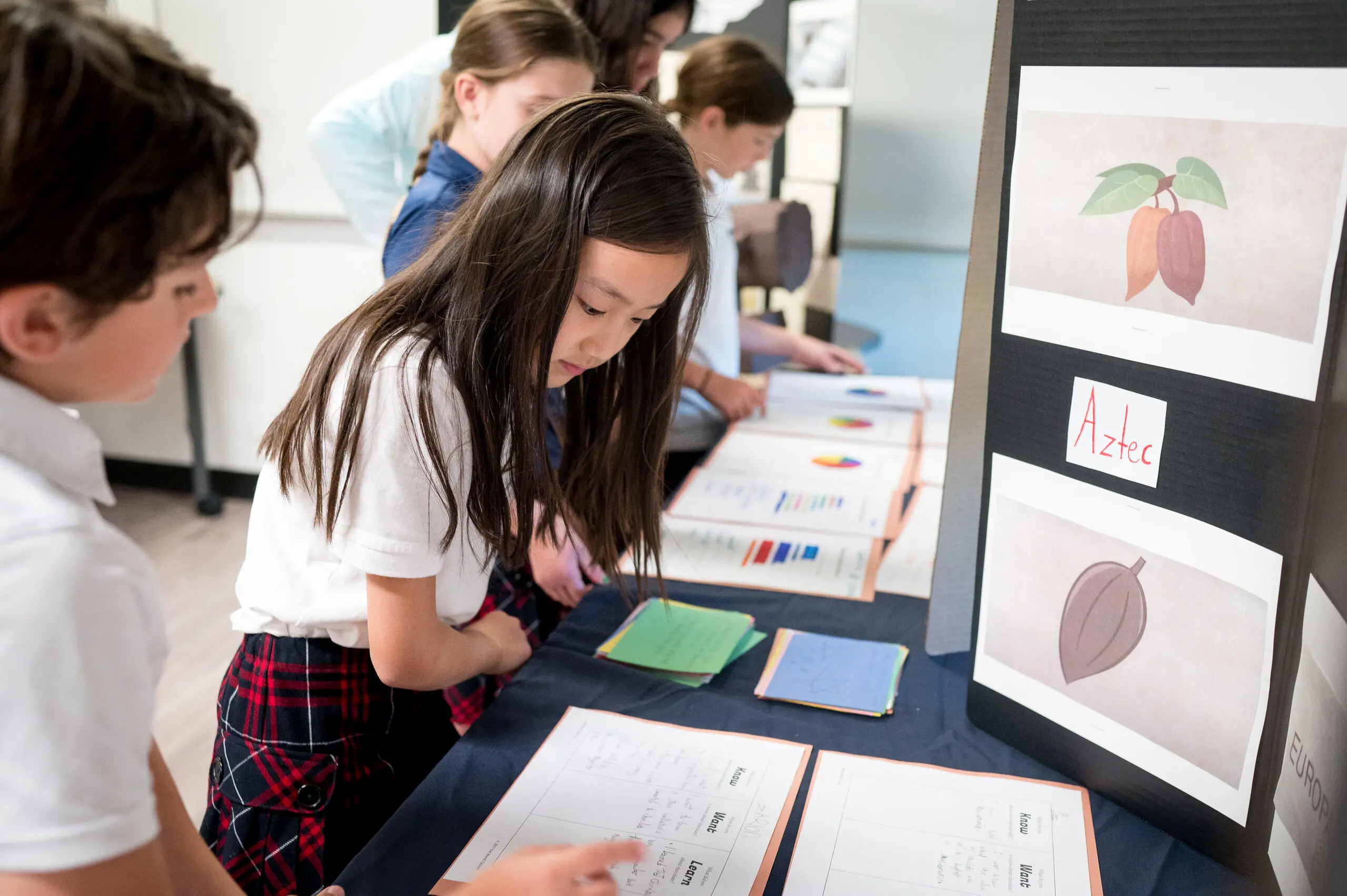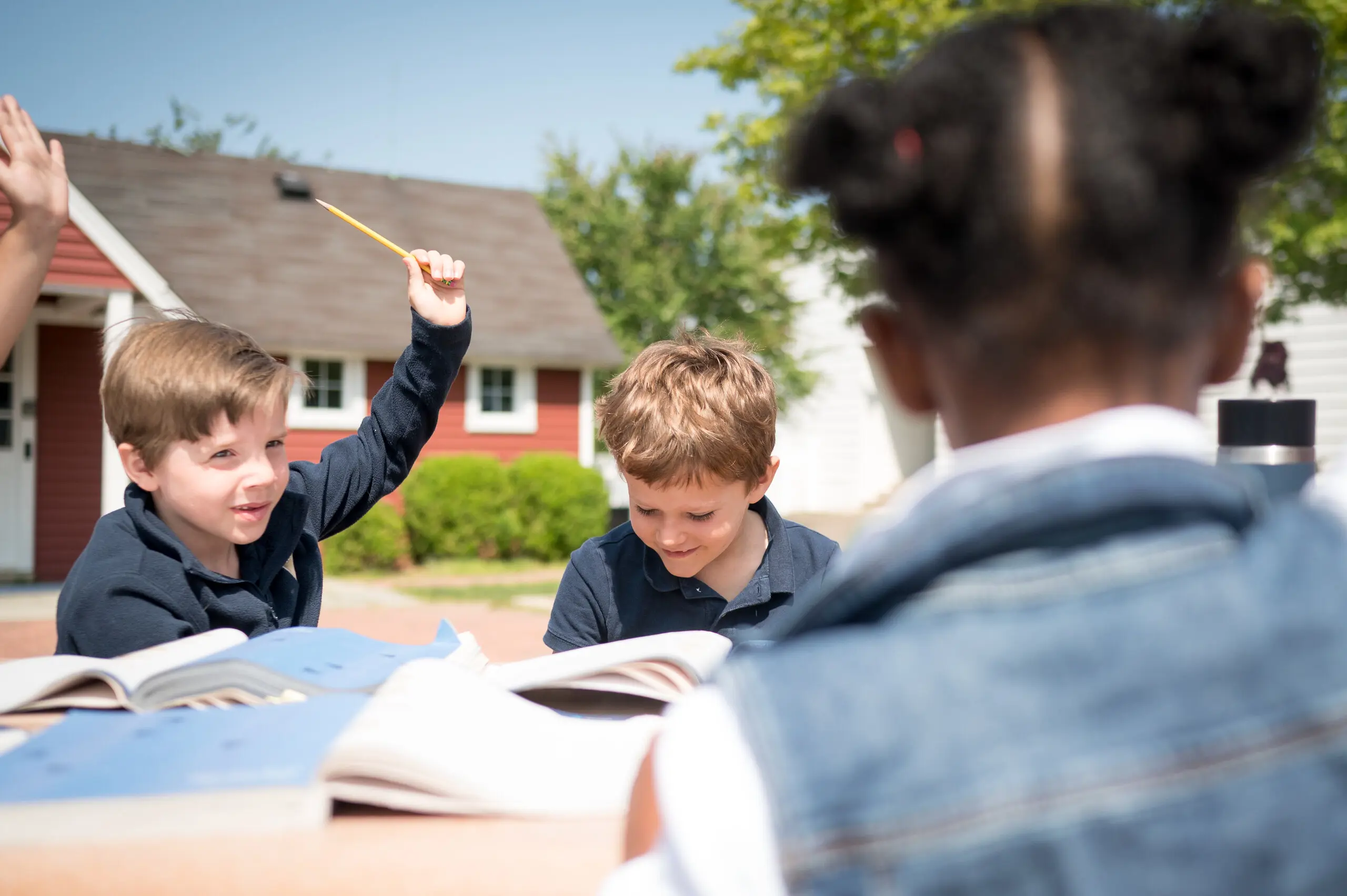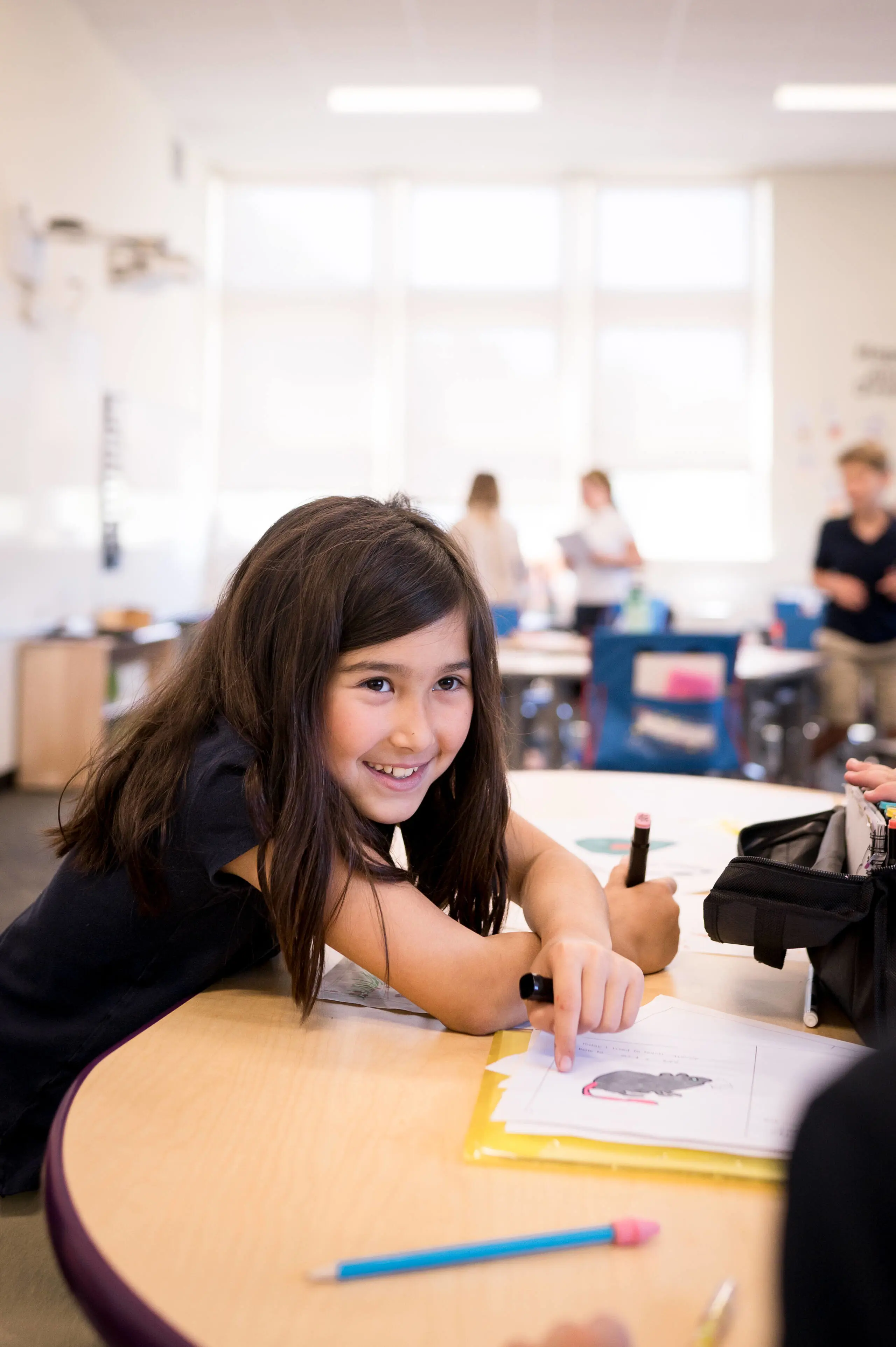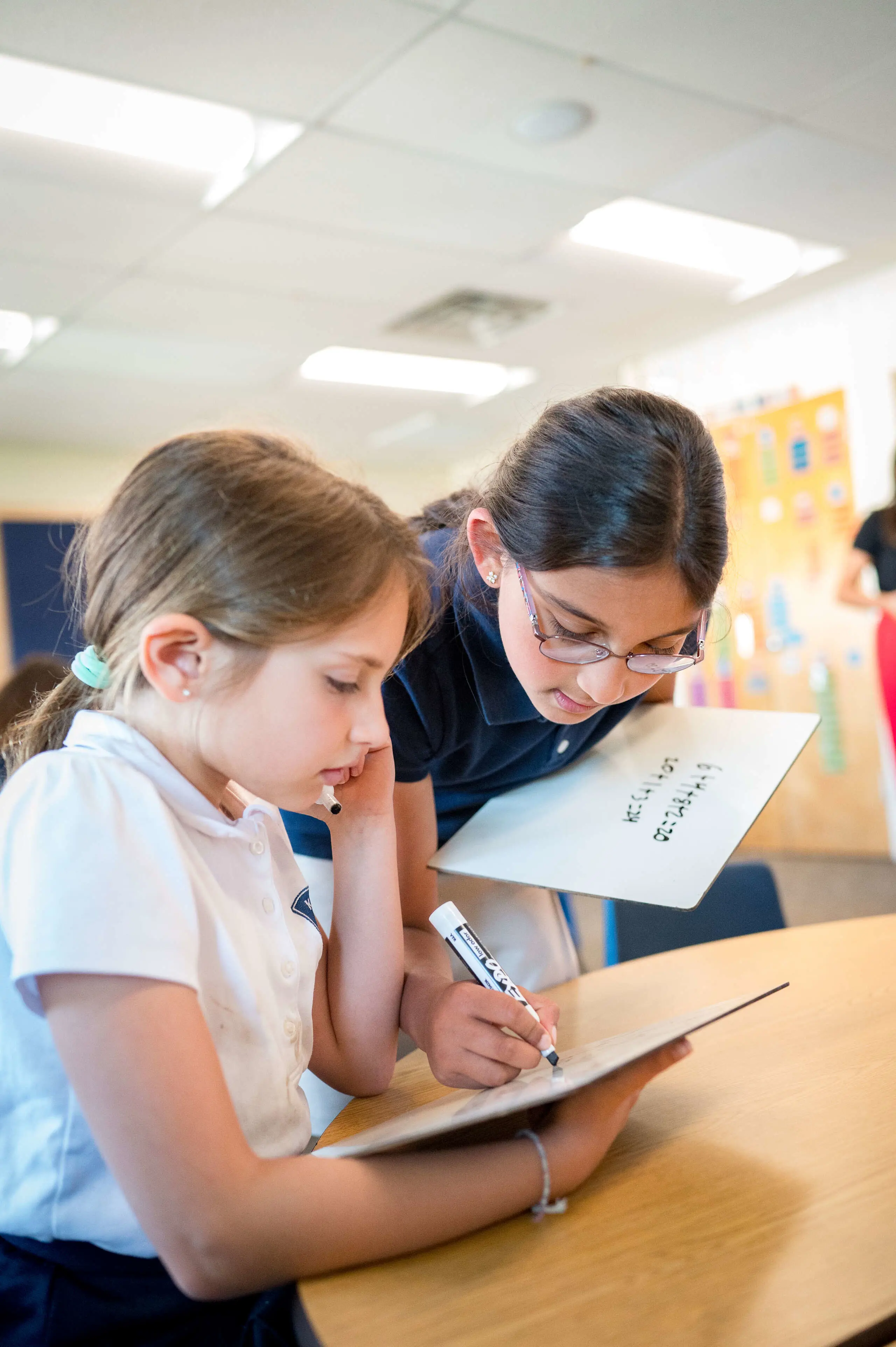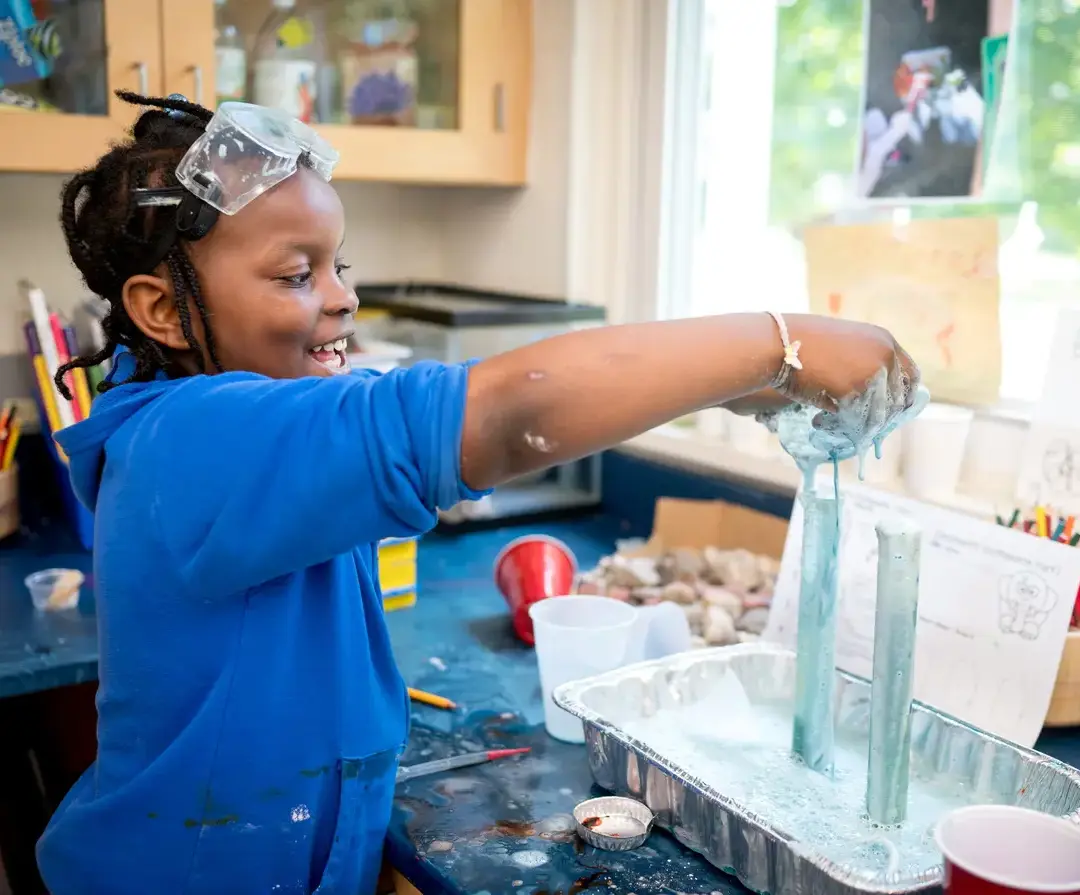Exploration and GROWTH
While exploring their sense of self, children begin to understand their place in the world.
Elementary school children are naturally curious and come to school eager to learn and engage with friends and teachers.
They are developing a sense of responsibility and take pride in their accomplishments. Creative expression in various forms is quite evident throughout the preschool and elementary school years, the years of most significant physical, mental, and emotional growth and change.
Lower School Program Design
The program focuses on building and developing core foundational skills. Because teachers come to know students well, they are able to support them as individuals and design unique learning opportunities to appropriately challenge and stretch every learner.
Another strength of the program is the emphasis placed on fostering the social, emotional, and physical growth of each student. |
A safe, nurturing climate permeates the Lower School.
Our teachers focus on supporting each child’s individual growth in a safe and nurturing environment. Their approach is purposeful, drawing on resources like Responsive Classroom to help build strong, supportive communities.
In these classrooms, students feel encouraged to take risks, try new things, and grow with confidence. The program design supports the curricular goals established by the King community.
Communication, intellectual processing, character development, and personal growth are key skills needed “to pursue lives of ongoing inquiry, learning, accomplishment, personal fulfillment, and social responsibility.” The groundwork for these important concepts is established in the Lower School.
Lower School Goals
- Foster a love of learning
- Promote individual, social, and emotional development
- Develop fundamental academic skills
- Apply and integrate intellectual processes
- Develop physical and artistic expression
- Instill the virtues of good citizenship and social responsibility
Lower School Project Approach
King’s project-based learning approach to teaching allows students to gain knowledge and skills by investigating a real-world, complex, question, problem, or challenge.
King’s instruction focuses on the process, not the product. Through inquiry, students master the skills, standards, and concepts taught and can apply them to the real world. Inquiry at the Lower School results from three main puzzle pieces being put together: the student, the environment, and the teacher.
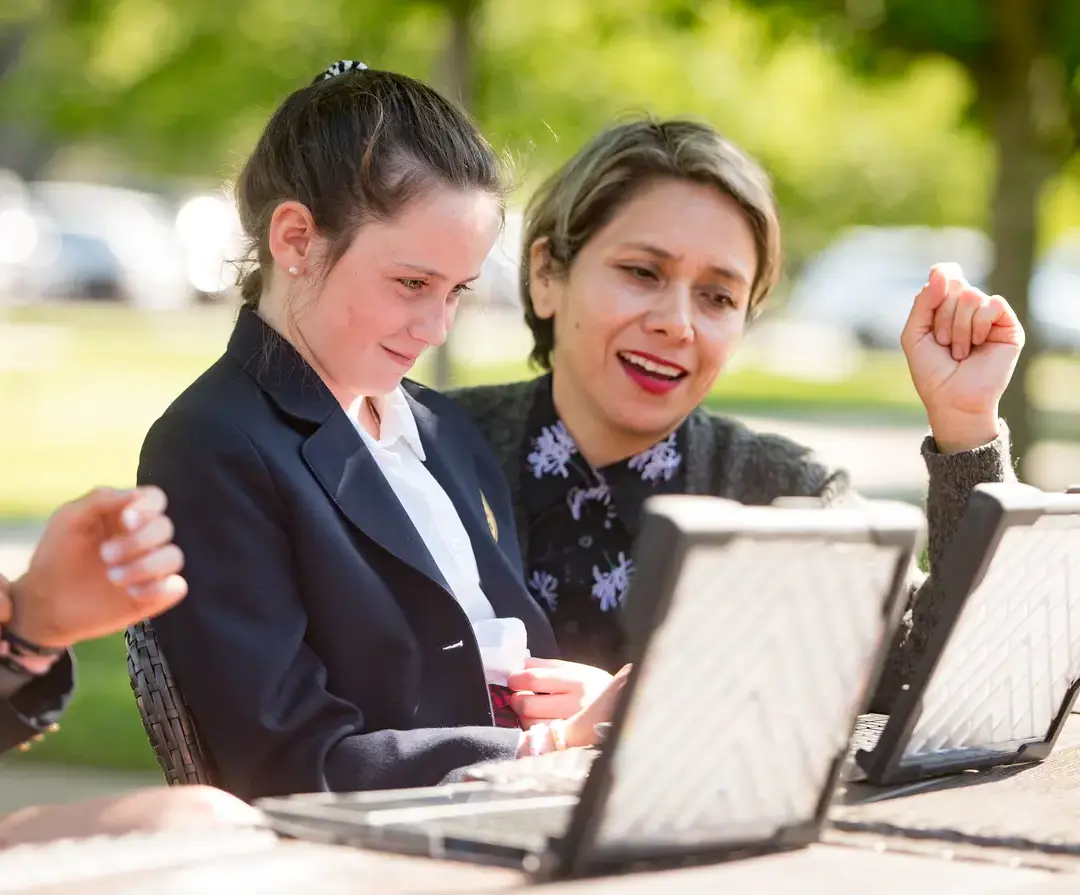
These three key pieces allow for an ongoing and fluid process of wondering, exploring, and applying. King teachers carefully, and purposefully, design learning opportunities by listening to students’ ideas and questions. Each unit’s driving question guides the exploration of learning.
Students share their answers and findings of the driving question at the end of the unit through presentations, demonstrations, and performances.
King students develop problem-solving and critical thinking skills through engaging in project-based learning. These interdisciplinary units make learning meaningful and applicable to students’ lives. |
Examples of Project Based Learning
| Kindergarten: Where am I in the World? |
|---|
| In this unit, students use mapping skills to explore the various levels of community around them to then expand to the larger world where they gather and share information about a specific location that has meaning to them. |
| Grade 2: How is geometry used to convey a story or meaning? |
| In this unit, students explore geometry around the world and the meaning behind it and in turn become inspired by Ndebele homes, Islamic mosaics, and Kente cloth, to design pieces to tell their story. |
| Grade 5: How can we use music to communicate about characters and themes in a story? |
| In this unit, students analyze the book Out of My Mind to create a literary playlist with linear notes to describe how each song’s lyrics represent a specific aspect of the novel such as character complexity, theme, and climax. |
Lower School Subjects
| Literacy |
|---|
|
At the Lower School, our Literacy Instruction is grounded in grade-level standards and focuses on foundational skills that are essential for developing advanced readers and writers. Using the science of reading and by studying skill progressions, teachers provide students with robust learning experiences at each grade level. For example, teachers provide direct instruction in the following areas:
|
| Science, Technology, Engineering, and Math (STEM) |
| Students observe, discover, predict, and question. Makerspace, Lower School Science Lab, Computer Science Media Center, and classroom activities all provide inspiration and tools for students to tinker and practice designing solutions to real world problems, so students gain a greater sense of self-confidence and purpose. The Lower School uses Math in Focus as its core program. A Singapore approach to mathematics allows students to cover material in depth. The Singapore Mathematics Framework focuses on skills, concepts, processes, metacognition, and student attitudes. To develop conceptual understanding, students will move through topics using a Concrete-Pictorial-Abstract (CPA) progression. Our instruction is rooted in inquiry and project-based learning, designed to give children a deeper understanding of mathematical concepts. This approach develops confident, creative, mathematical thinkers who persist in problem-solving. |
| Social Studies |
|
Our lower school social studies curriculum invites students to explore the world through multiple perspectives as they begin to understand their roles as thoughtful, responsible members of a global community. The social studies curriculum is rich, dynamic, and inquiry-based, which is designed to help students make meaningful connections between themselves, their community, and the wider world. Students explore the world through multiple perspectives as they develop an understanding of their roles as informed and compassionate global citizens. Through hands-on, project-based learning, students conduct research and examine primary sources to build critical thinking and deepen their appreciation for cultural, historical, and geographic diversity. Beginning with an exploration of the city of Stamford and the state of Connecticut, students expand their understanding outward to include the regions of the United States and how land shapes identity and culture. As they move through the grades, they investigate themes such as immigration, ancient civilizations like Kush, Egypt, and Mesopotamia, and the impact of young changemakers around the world. Throughout, songs, stories, art, and interactive experiences bring the curriculum to life, encouraging students to honor national, cultural, and religious diversity while developing a strong sense of identity, community, and purpose. |
Cross-Grade Subjects
| Art |
|---|
|
Children increase their confidence and learn skills to express their ideas visually. When evaluating their success, students learn to understand the process of critique. They also realize the importance of collaboration and independent work habits. |
| Music |
|
An active, multicultural program that enables all children to experience success in creating and performing music in all strands of the program, leading them to be lifelong music makers. |
| Physical Education |
|
Challenges students to reach their fullest physical and intellectual potential through various physical and kinesthetic awareness activities. |
| World Languages |
|
Students are encouraged to develop, reinforce, and refine their language skills of listening, speaking, reading, writing, and culture, and are exposed to cultural experiences. Spanish (Prek-Grade 5), French ( Grade 5), and Chinese (Grade 5). Additional programming and resources in Library and Media, Global Education, King Cares, Diversity, Equity, and Inclusion. |
Explore the Lower School Guide
Learn about our Lower School special offerings including: performing arts, physical education, and art and design. Read more about our academic philosophy and view detailed descriptions of all Grade programming.
| Prekindergarten - Starting at age 3 |
|---|
|
| Kindergarten |
|
| Grade 1 |
|
| Grade 2 |
|
| Grade 3 |
|
| Grade 4 |
|
| Grade 5 |
|
Support Team
The Counseling Department facilitates the social and emotional development of all of our students through the development, implementation, and coordination of the social skill, life skill, emotional development, and prevention programming for the Lower School.
The Counseling Department provides individual and small group counseling and support for students. It provides support and guidance for teachers and administrators in working with individuals or small groups of students.
It provides support and guidance for parents, as well as referrals to community resources.

